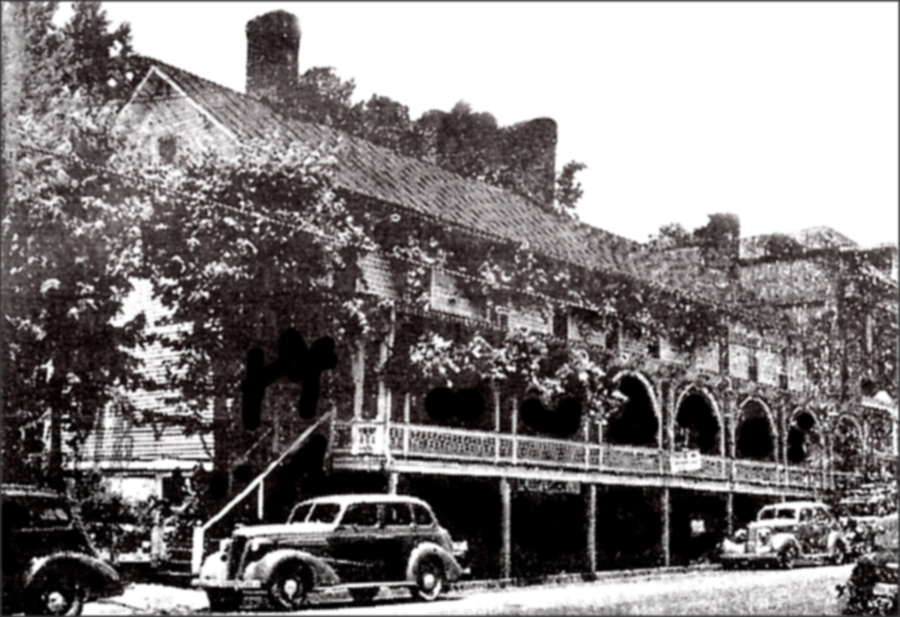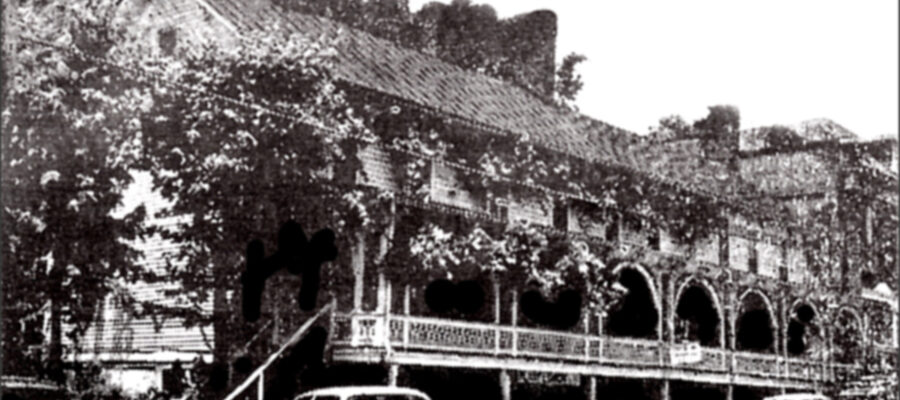A 1969 promotional brochure, produced by the Jonesboro (earlier spelling) Kiwanis Club, Washington County and the Town of Jonesboro, impressively described the historic borough as the “Mother of Tennessee.”

The Chester Inn in Jonesboro
The publication offered a succinct history of Jonesboro: “A mirror of Colonial America history, it is the oldest town in Tennessee chartered by the North Carolina assembly in 1779 and founded the following year. Jonesboro was named in honor of Willie Jones, patriot and prominent citizen of Halifax, NC, who sponsored legislation favoring and aiding the western settlements.”
One interesting statement in the write-up says, “Washington County, of which Jonesboro is the County Seat when created was said to embrace all of what is now Tennessee. Also, it was the first political sub-division in America to be named in honor of George Washington.”
The first courthouse west of the Blue Ridge, a crude log structure, was completed there in 1778, and it became the judicial capital of East Tennessee.
Jonesboro was designated as the capital of the short-lived State of Franklin that was organized in 1784. Andrew Jackson traveled over the rugged mountains from North Carolina and was admitted to the bar in Jonesboro in 1788. Later, as the seventh president of the United States, he rode through Jonesboro many times en route to Washington, once holding a reception for his friends on the porch of the historic Chester Inn.
Mention was made of the Battle of Kings Mountain where riflemen from the city followed John Sevier to probably the most celebrated battle of the Revolutionary War. After the conflict, these brave men followed their leader on many victorious Indian campaigns.
Later, old Jonesboro offered many amenities: Southern Railway Company provided rail service to and from the community; a major carrier provided bus transportation through Jonesboro, including semi-hourly interurban trips to Johnson City; and motor freight carriers were well represented throughout the region.
TVA received high accolades for its abundant, consistent and inexpensive supply of power to the community. Another benefit for residents was receiving the purest freestone water supply available that was piped in from nearby pristine mountain streams.
Jonesboro, perched 1700 feet above sea level with a population of about 7500 inhabitants, was said to enjoy a year-round ideal moderate climate with few extremes of hot or cold.
The informative brochure boasted of the town being within 15 miles of the Unaka Game Management Area, which was stocked with deer, bear, turkey and grouse. Streams and TVA lakes, including the stunning Watauga Lake, were within easy driving distance, offering the angler with trout, bass, crappie, pike and other game fish.
The county regularly distributed milk, other dairy products, tobacco, poultry, eggs, beef cattle and grain. Thousands of tons of sweet peppers were produced annually in Washington County, both for seed and the canned food industry.”
A noteworthy attraction for the town was the growing of millions of tulip bulbs for the seed market. Endless rows of brilliant multicolored tulips grew between Jonesboro and Erwin along the Nolichucky River bringing to the area a flood of visitors each spring. My Cox family photo albums have several pictures of my folks enjoying those herbaceous flowers (having little or no wood).
The brochure made a brief comment about area homes: “Scattered among the modern residences are scores of beautiful century-old homes of quaint and interesting architecture.” Today, 47 years later, the “Mother of Tennessee” has retained that same delightful charm.

Comments are closed.